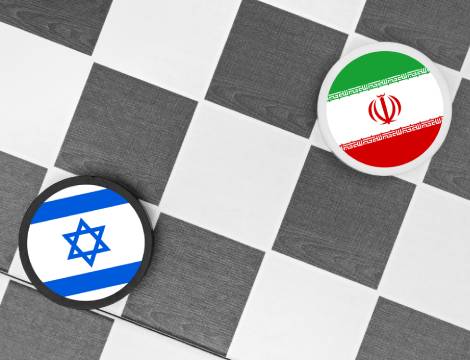Civilians at Risk as Israel/Iran Cold War Changes Hands
Millions of ordinary citizens in Iran and Israel are caught in the middle of a cyberwar between the two countries and are feeling its effects, The New York Times reported on Saturday.
Israel and Iran have engaged in a hot conflict for years, but the targets have almost always been government-related. New developments have indicated that the scope is broadening to civilian targets as well.
A cyberattack on Iran's nationwide fuel distribution system by Israel on Oct. 26 paralyzed the country's 4,300 gas stations, which took 12 days to restore service entirely, two anonymous U.S. defense officials told the Times.
Gas pumps suddenly stopped working, and a digital message displayed the phone number of the country's supreme leader, Ayatollah Ali Khamenei.
Iran's billboard network was also hacked, and ads with the message "Khamenei, where is my gasoline?" showed up across major cities.
The Iranian Oil Ministry had to send technicians to every gas station in the country to get the pumps back online, the Times reported. The Iranian oil minister, Javad Owji, issued a rare public apology on state television for the events, where he pledged an extra 10 liters of subsidized fuel to all car owners.
The alleged Israeli attack was followed days later by retaliation from Iran against a central medical facility and an LGBTQ+ dating site, exposing profiles of individuals, Israeli officials said, per the Times.
Hackers gained access to the databank of the Israeli gay dating site Atraf, medical files at Machon Mor Medical Institute, and insurance records from Shirbit. Personal information of about 1.5 million Israelis, around 16% of the country's population, were posted to a channel on the messaging board Telegram.
The Israeli government asked Telegram to block the channel, which it did. But the hackers, named "Black Shadow," immediately reposted the material on a new channel and continued to do so each time it was blocked.
Three anonymous senior Israeli officials told the Times that Black Shadow was either part of the Iranian government or freelance hackers working for the government.
Neither Israel nor Iran has publicly claimed responsibility or laid blame for the latest round of cyberattacks.






.jpeg)
Comments
Post a Comment